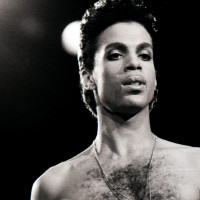After the release of Wannabe on 8 July 1996, the Spice Girls briefly became the biggest band on the planet. So what did it mean to be a devoted fan of Ginger, Sporty, Posh and co?

Twenty years ago , on 8 July 1996, the Spice Girls released their debut single, Wannabe. Within weeks it was No 1 in 31 countries, and the five had become more than pop stars they were archetypes: Scary, Sporty, Posh, Ginger and Baby. Its hard to imagine the 1990s now without the Spice Girls, and even harder to remember what kind of role models tweenage girls had before the band came along and mesmerised 10-year-olds the world over with their entry-level feminism, packaged under the name Girl Power.
Girl Power a term repurposed by Geri Halliwell after she spotted it on the cover of an album by the pop duo Shampoo was from the start a fan-based movement, and many of the fans were extraordinarily young. It wasnt unusual to find toddlers piping: Ill tell you what I want, what I really, really want and what they really wanted was to be part of the group. Failing that, they spent their parents money on the largest range of merchandise ever endorsed by a band, from cameras to crisps, deodorant to chocolate.
Theres nothing like a fan movement led by young girls to get adults backs up, and in this case the mercenary tone of it all riled them as much as the music. Theres a sort of arrogant sexism about what preteen girls listen to, notes columnist and author Rhiannon Lucy Cosslett, who was a Ginger fan. It instilled in us the importance of being girls together, but [adults] look down on what the teenyboppers are listening to.
Shes not wrong. Much of the music press hated the group; Liam Gallagher let it be known that he was prepared to chin them (their response: Come and have a go if you think youre hard enough). I even wrote in the Guardian at the time: The Girls will undoubtedly be insulted by this, but they have more in common with Big Fun a faceless boy-trio who had some feeble hitlets around 1989 than they think. Both groups have a showbiz tang to them rather than the up-from-the-streets feel that is still crucial if a band is to be taken seriously. That was me.
OK, so I was wrong. But when I wrote that, authenticity was an important consideration when weighing up a bands prospects, and to me the Spice Girls were authentic fakes. They had been assembled after answering an ad in the theatrical magazine the Stage, while the title Wannabe had been lifted from the nickname given to Madonnas followers a decade before. They seemed so contrived in fact, the planning behind the launch was virtually military-level, affirms Selina Webb, then editor of the trade magazine Music Week. They were keen to have a piece in Music Week, so Geri and Scary came up to say hello because theyd been told to. But they did it in a charming, blow-you-away sort of way. The tried and tested way of breaking a band was to get excited about the music first, but with the Spice Girls, you got excited about them as people first. And they were unstoppable. They clocked up hit after hit nine No 1 singles and three top two albums, all selling in the kind of numbers that would make modern-day label executives weep.
The fans themselves, now in their 20s and 30s, remember things a little differently. Most fans were so young that the Spice Girls were the first band they had ever liked, and what they saw was something more transformative than just Ginger and the gang coining it from merchandise. Empowerment may not have been in their vocabularies, but when they saw the Wannabe video shot in one take at Londons then-derelict Midland Grand hotel, where the Girls rampaged through the rooms, jostling old people an ember of rebellion was kindled.
Mima Chovancova, a Slovakian who is now half of the Brighton-based DJ duo Tesla Girls was six she first noticed the band. It was my way into thinking about being a girl, and why that makes me different in terms of opportunities and standards. In Slovakia we didnt have young pop stars like that at the time the stars were middle-aged men or little kids, so when the Spice Girls came, it was just so powerful and happy and diverse. Each and every one of them was different. They were all mates.
Their merchandise wasnt available in Slovakia, but Chovancovas parents ferried things back from business trips to Paris. Her collection included Baby-style platform sneakers Emma Bunton was her favourite perfume, deodorant (horrible) and the entire set of Spice dolls. But the relentless merchandising takes on a different tenor when fans talk about owning lunchboxes and perfume: it wasnt money thrown away, it was a link to the group themselves, and to Girl Power.
I was most upset, because they did Impulse body spray and Ive never smelled anything as good again, says Elle Exxe, an electropop artist who was five when the Spice Girls launched. It had an orange top and their logo with different kind of fabrics. I was fascinated by how, even though they all had different personalities, they came together and became a unique brand.
Some fans were influenced in more formative ways. You have only to read the DenDen forum, run by and for Spice fans, to glean the impact they continue to have on some admirers. Currently, theres a lively discussion about whos to blame for a much-rumoured Spice reunion falling through. Amid much toing and froing, a disconsolate individual called Mads writes: It was meant to be a happy anniversary, and now its becoming the saddest anniversary ever. Not only we dont get a reunion, but apparently some of them are having arguments because of this anniversary.
Few fans are still invested to that extent, but they acknowledge the bands importance to their adolescence. Ciara Green was a tracksuit-wearing 11-year-old on an estate in Belfast and remembers her delight at seeing Sporty in Adidas get-up. Ginger, though, spoke to her most clearly: She was loud and obnoxious, and there werent many women like that on TV. I knew to an extent that I was a lesbian but I wasnt sure I had an affiliation with loudmouthed, tomboy women, and Geri was quite loud and had the qualities associated with men. Women werent allowed to be like that in public and to see them on Live and Kicking and getting completely arseholed seemed funny and brilliant. That ladette culture they were part of helped me to accept the way I was.
Joe Parry, a music publicist in London, remembers them helping him to acknowledge he was gay. I think it was the sense that they didnt care what other people thought. When I was a kid I was quite loud, and people didnt know how to take me because I was obnoxious. But the Spice message was about access and equality and liking your mum, and all that meant something to me. I wouldnt say they implicitly helped me to come out, but the underlying message of acceptance and empowerment did help, in a way. I was a fan until the very end.
Many fans deserted the band before they split in 2000. Halliwell had departed acrimoniously in 1998, exposing the friendship never ends bedrock as perilously brittle. It was the worst day of journalist Tina Edwardss childhood: I burst into tears and asked my mum to tell me it wasnt true. I was bawling my eyes out all the way to school. She followed the subsequent solo careers out of habit, but felt no emotional engagement: what was broken was broken. George Pringle, now a photographer, echoes the betrayal she felt when Ginger exited. I unquestioningly loved them, but maybe their only success is that they taught us about sisterhood, she muses. It was about sisterhood, but they couldnt even get along when Geri left was when the spell evaporated.
Yet all these fans confess to still knowing the words to the songs, and see the Spice years as formative. Because it all happened before social media, which enabled girls to organise into fandoms, there are no Instagram or Vine clips documenting gaggles of girls bawling along to Wannabe outside hotels and airports, but the memories will be with them for life.






